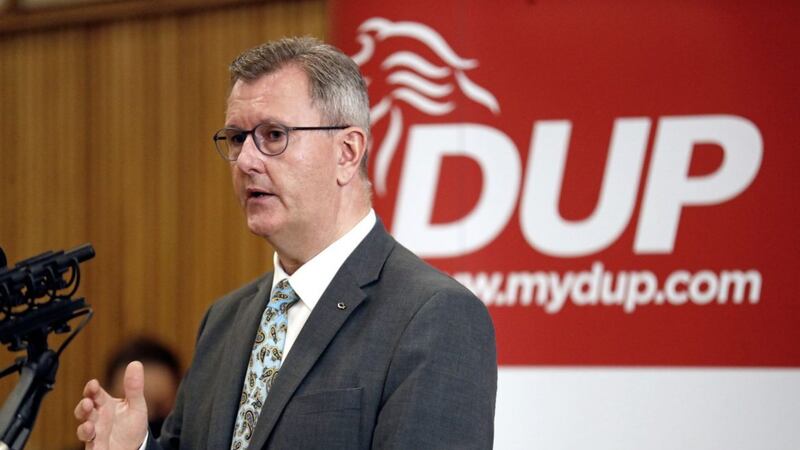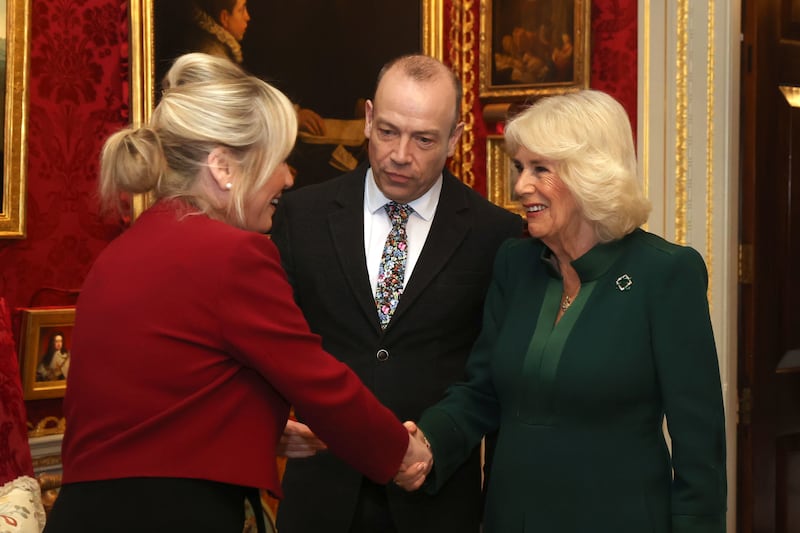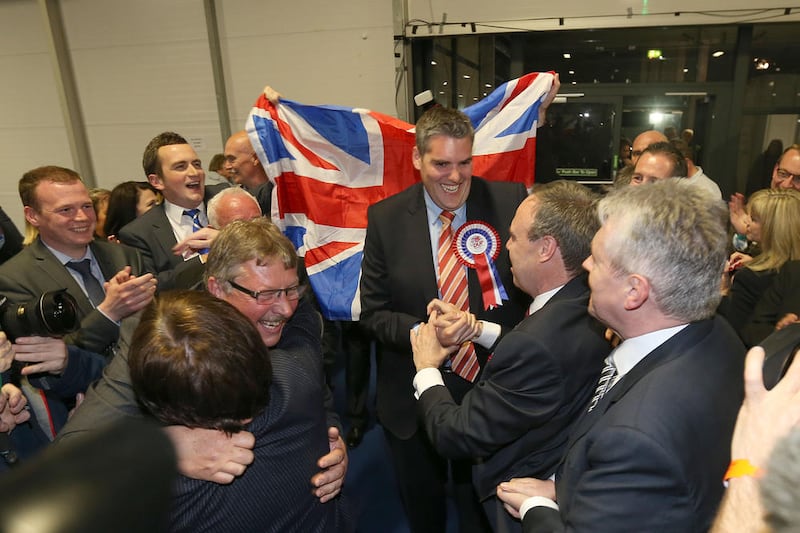The start of December means that it is time for another deadline.
You will remember that Jeffrey Donaldson threatened to pull down Stormont unless the protocol was abolished by October 31.
He then extended that date to the end of November and since Stormont is still operational (not that anyone would notice), he now needs a new deadline. This will presumably be the end of December, or January, or June or whenever. A Donaldson deadline is like the end of a rainbow - you never actually reach it.
So Jeffrey is beginning to look a bit silly, which is an inevitable result of his poorly planned anti-protocol campaign. He made three mistakes.
The first was to set a deadline, thereby handing the initiative to his opponents. Not carrying out the threat, means he loses. If he carries it out, he no longer has a threat and is thus disarmed.
His second mistake was to make the wrong threat. Pulling down Stormont would make little difference to everyday life. Opinion polls show that more than two thirds of people think Stormont is dysfunctional and only seven per cent (ministers’ family and friends?) believes the executive works effectively.
We have grown accustomed to MLAs being paid for doing nothing at home. Sabotaging Stormont would merely propel us from apathy to applause, which makes Jeffrey’s approach more of a promise than a threat.
Jeffrey’s third mistake was his most serious. In failing to collapse Stormont, he denied a political way forward for loyalism. Although loyalist paramilitaries are now just a loose assembly of drug dealers and British agents, they can organise violence.
Their problem is finding an identifiable enemy. Although Translink and the PSNI (despite its significant Protestant majority) are convenient targets, loyalist paramilitaries’ history shows that when in doubt, they attack Catholics.
Jeffrey’s three mistakes are part of his wider strategic error in challenging the protocol in purely sectarian terms. The obvious argument against it is its potential damage to businesses and the supply of everyday goods, such as medicines.
By portraying it in constitutional terms, he sidelined wider support for his cause. Instead he reduced it to the dreary predictability of flag waving and Orange Hall signatures.
He might have tried broadening his support base to include non-unionists opposed to EU membership. They include older Sinn Féin supporters who are still anti-EU, despite the party’s U-turn on the issue.
Their existence was recognised last year by Mary Lou McDonald’s criticism of the EU (despite SF being devout EU supporters) for its “privatisation agenda, growing federalism and the eroding of State sovereignty, as well as the push for a militarised EU.”
Jeffrey might have spotted the common ground and approached Sinn Féin on the issue. (Sadly, in Ireland the common ground is often seen as a good place for a row.) He might also have told Simon Coveney that Norway, Iceland and Liechtenstein are fully within the single market, but they have never accepted the jurisdiction of the European Court of Justice (ECJ).
The new German government (which will effectively run the EU) recently announced that the EU should focus on developing a single federal state. Jeffrey might have highlighted nationalism’s pro-EU stance as support for Germany’s imperial ambitions to rule Europe.
But since the DUP supports Britain’s imperial ambitions, he opted instead for improbable deadlines. Someone once said that if we did not have deadlines, we would stagnate. Jeffrey’s campaign is stagnating because he had too many deadlines - all of them so far unmet.
There is a strong argument to be made against the protocol in its present form, but Jeffrey is not the man to make it. If the current court challenge to the protocol rules in unionism’s favour, he will gain a political lifeline. If, however, the case is lost, Jeffrey will have run out of options and he will be no nearer the end of the rainbow.
113117








